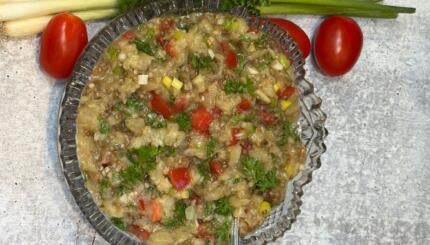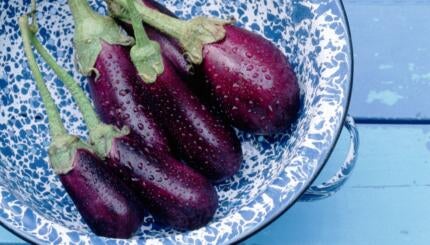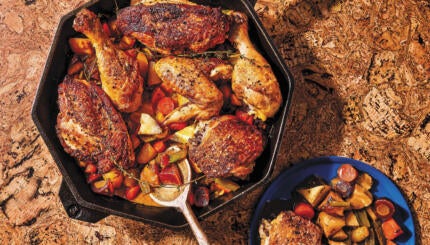Berlin is one of the most vibrant cities in the world today, touting a renowned arts and culture scene alongside a fascinating political history. Jewish communities have been present in the region since the Roman Empire, but Jewish culture truly blossomed with the Jewish Enlightenment (Haskalah) in the 1770s with Berlin as one of its hubs. Of course, the painful legacy of the Nazi regime and the Holocaust is unavoidable when visiting Berlin, down to the brass stumbling stones embedded in the ground in front of buildings, memorializing the fate of Jewish Berliners.
Today, Germany boasts one of Europe’s fastest growing Jewish communities. And with a growing Jewish population, as well as plenty of Jewish tourists, has come a bevy of new restaurants and Jewish foods scattered throughout East and West Berlin. There are old school German restaurants that cater to the longstanding German Jewish community, primarily located in West Berlin. Highlights include a kosher-certified German bakery making challah and other Jewish specialties as well as a 90-year-old deli/cafeteria known for its excellent smoked fish.
Berlin is also fostering a new, evolving Jewish community comprised of Israeli transplants and other Jewish expats from places like the United States and the United Kingdom. It’s estimated that over 10,000 Israelis live in Berlin today, so it’s no surprise that there are countless Israeli restaurants and hummus bars. You can also try superb bagels and baked goods at one of the hippest bakeries in the city — at the Shakespeare & Sons bookstore. True food travelers may try to time their trip to coincide with the annual Jewish food festival, Nosh Berlin. There’s a lot to be excited about in Berlin today, especially its growing Jewish food scene.

The Nosher celebrates the traditions and recipes that have brought Jews together for centuries. Donate today to keep The Nosher's stories and recipes accessible to all.
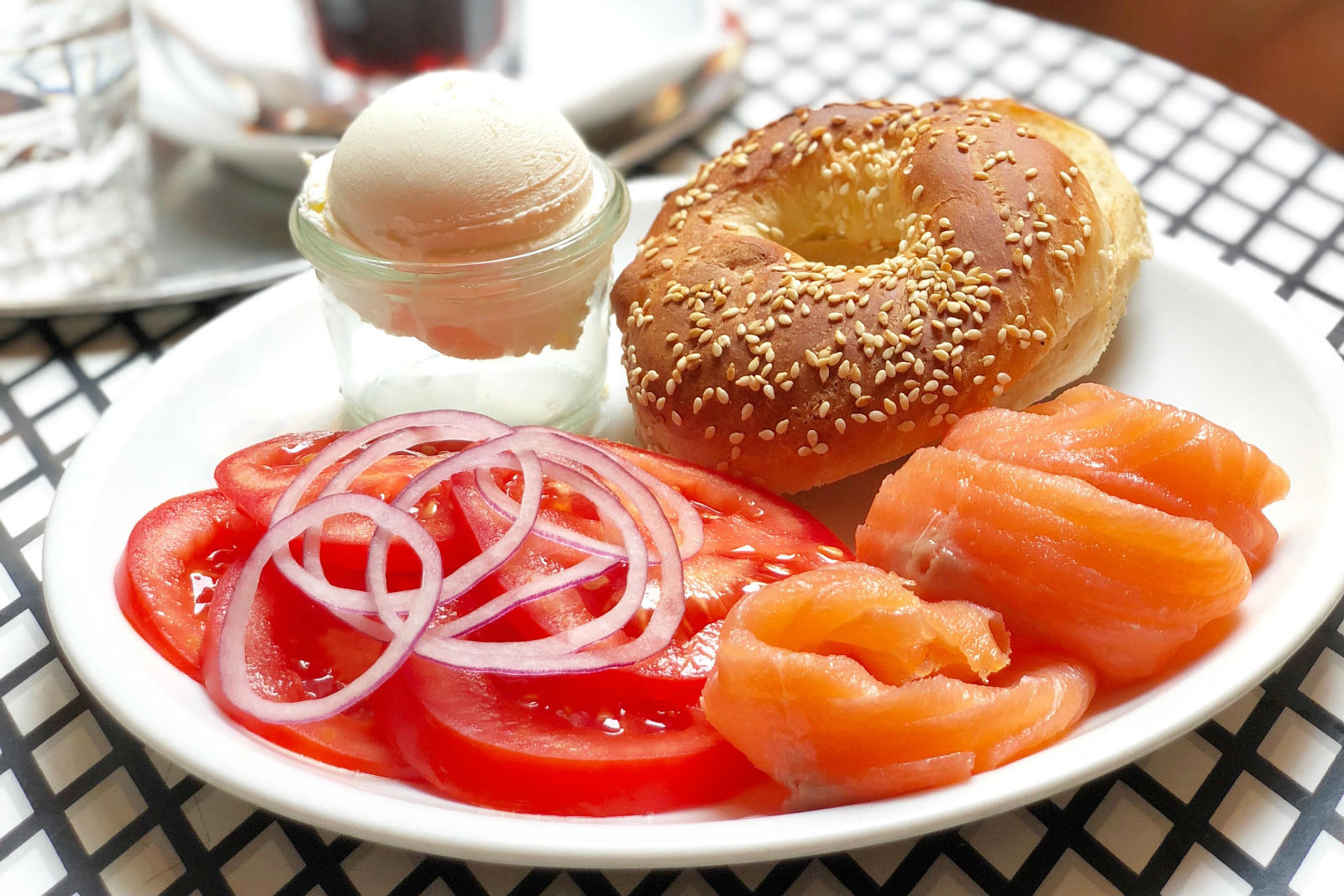
In 2000, Berlin’s Jewish community asked Kädtlers, a classic German bakery, to obtain kosher certification in exchange for business. The bakery agreed, and today, the relationship is going strong, as evidenced by the superb challah for Shabbat, as well as hamantaschen for Purim and other dairy-free Jewish baked treats all year round. Fine Bagels makes the best New York-style bagels in the city. Founder Laurel Kratochvila, originally from the Boston-area and now a master baker, decided to produce bagels like she remembered from home since there were none to be found in her adopted city. Try the classic flavors but don’t skip the rye. Other baked goods, like cheese Danishes, challahs, babkas, and rye loaves are also offered at Fine Bagels, as are bagel sandwiches, with a delicious dill or horseradish schmear. And they even have a stellar cookbook selection worth browsing. Zeit Für Brot opened in 2012 with its outstanding breads and pastries. With three locations in Berlin, in Mitte and Charlottenburg, they are famous for their beloved cinnamon rolls, known as schnecken among German Jews.
Pro-tip: Weekend crowds at Zeit Für Brot can be long, so don’t count on sitting down but order items to go instead.
![]() Kädtlers Bakery
Kädtlers Bakery
Danziger Str. 135
Berlin, Germany
Neighborhood: Prenzlauer Berg
*This bakery is kosher.
![]() Fine Bagels
Fine Bagels
Warschauerstrasse 74
10243 Berlin, Germany
Neighborhood: Friedrichshain
![]() Zeit Für Brot (Time for bread)
Zeit Für Brot (Time for bread)
Alte Schoenhauser Str. 4
10119 Berlin, Germany
Neighborhood: Mitte
![]() Zeit Für Brot (Time for bread)
Zeit Für Brot (Time for bread)
Konstanzer Str. 1
10707 Berlin, Germany
Neighborhood: Charlottenburg
![]() Zeit Für Brot (Time for bread)
Zeit Für Brot (Time for bread)
Eberswalder Str. 26
10435 Berlin, Germany
Neighborhood: Prenzlauer Berg

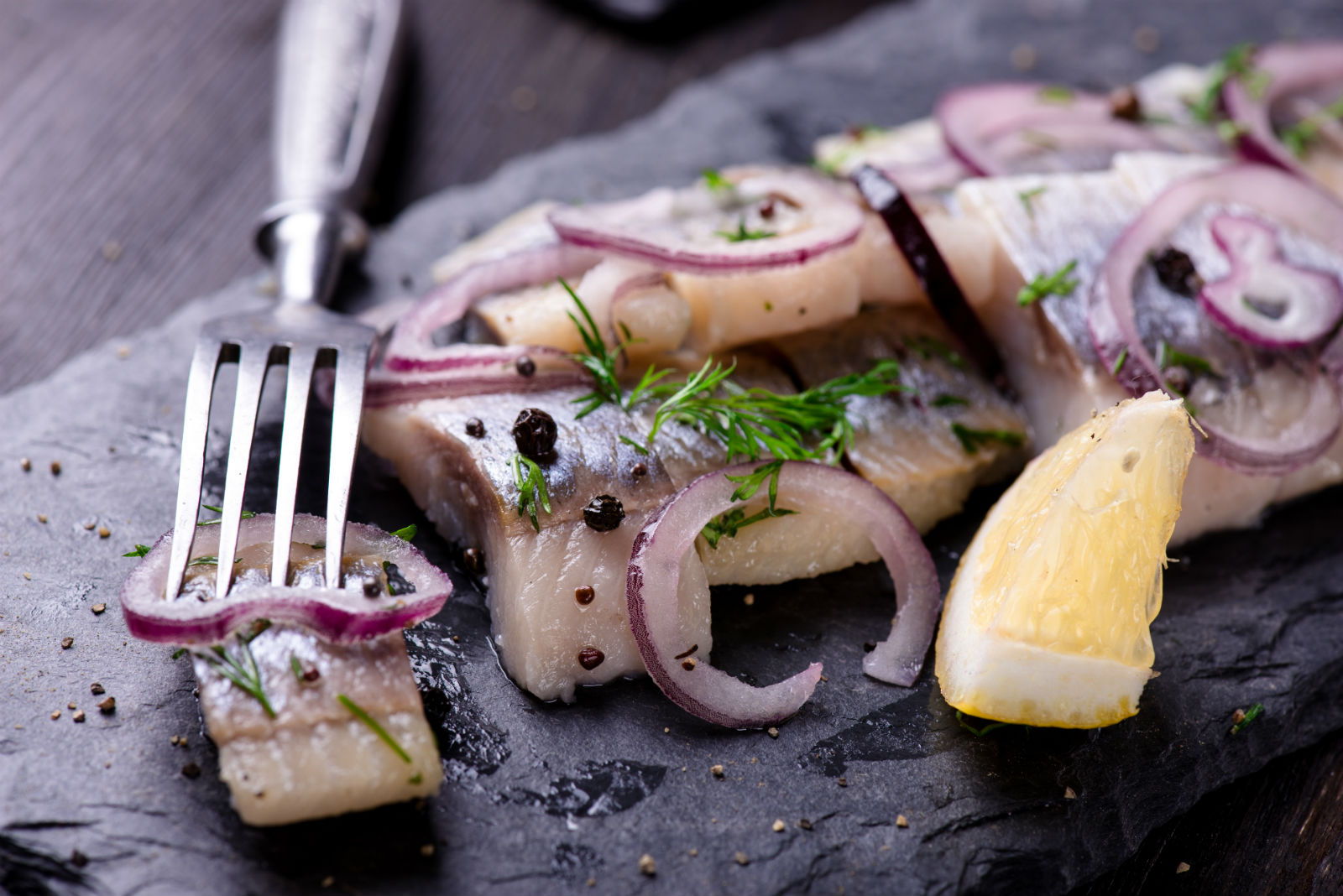
One of the realities of modern German Jewish life is that it’s easier to find foods of the Yiddish kitchen than classic German-Jewish foods. Restaurant Pasternak, a Russian-Jewish restaurant in Prenzlauer Berg, one of the hipper neighborhoods in the city, serves classic Russian-Jewish fare such as herring, pickled eggs, pickled mushrooms, caviar, and gefilte fish, all with plenty of vodka to wash it down. Rogacki is a 90-year-old deli in the old West Berlin neighborhood of Charlottenburg with what many Jewish Berliners consider to be the best smoked fish in the city. This family-owned business started small in a former stable. Although their specialties are classic German (and not very Jewish) dishes, Rogacki is nevertheless adored by the older Jewish women of the neighborhood. Sit at one of the two eat-in islands in the middle of the hall and expect wonderful food with somewhat chaotic but professional service. Their salted matjes herring is amazing and served with regional pickles.
Pro-tip: The owners of Pasternak run a bar next door called Gagarin where you can go after hours.
![]() Restaurant Pasternak
Restaurant Pasternak
Knaackstr. 22-24
10405 Berlin, Germany
Neighborhood: Prenzlauer Berg
![]() Rogacki
Rogacki
Wilmersdorfer Str. 145/46
10585 Berlin, Germany
Neighborhood: Charlottenburg

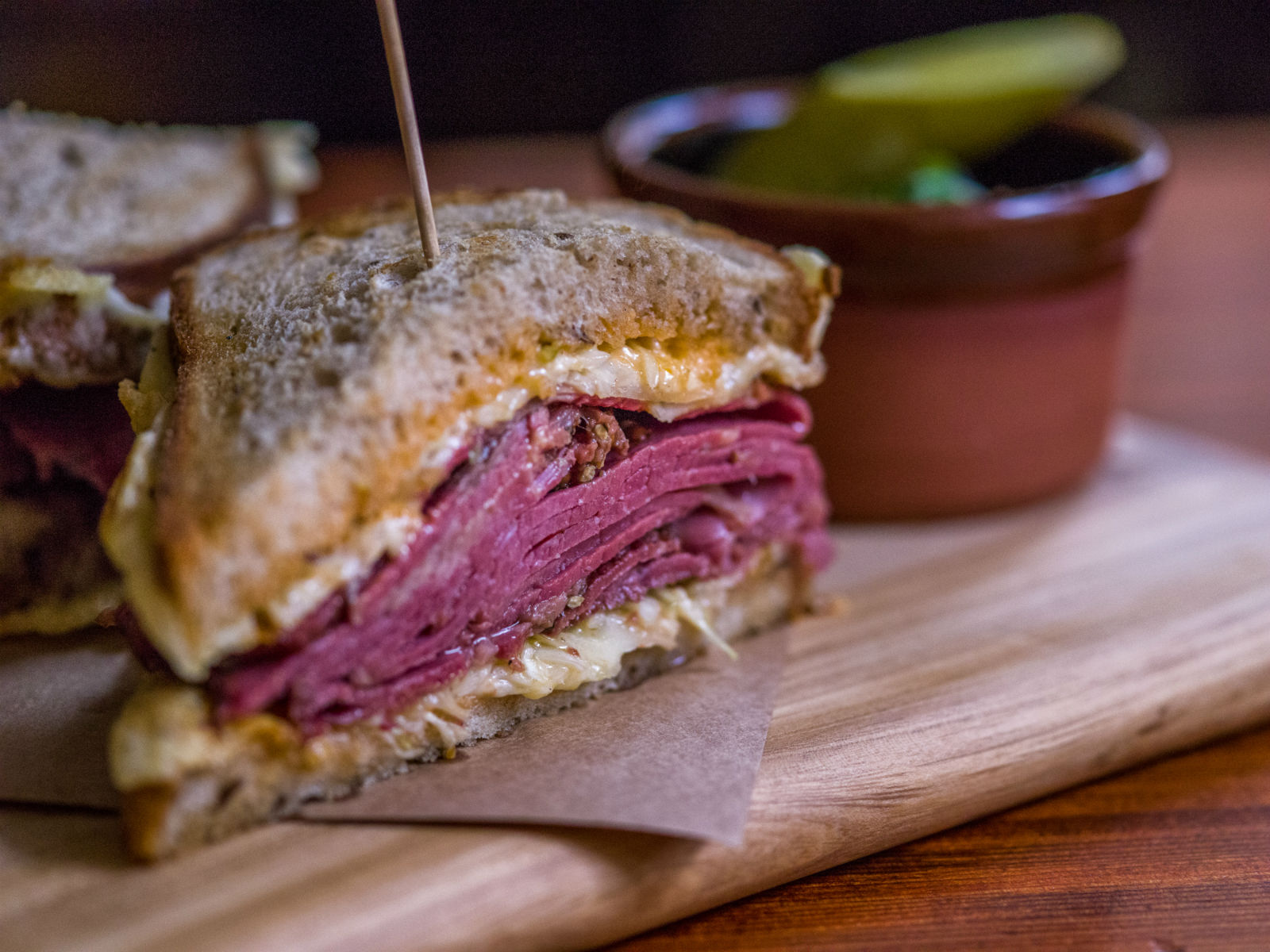
Jewish delicatessens in Germany pay homage to classic New York delis and traditional Eastern European Jewish dishes. Mogg is located in a former Jewish girls’ school in Mitte, the old Jewish neighborhood. You’ll be struck by the familiar smells of corned beef and chicken soup, but the ambiance and decor tell a more contemporary German story. Mogg’s stand-bys are the pastrami sandwich on excellent rye bread and a bowl of matzah ball soup (sinkers, not floaters). Mogg opened at the start of the recent wave of new delis taking the world by storm in the past decade. Barcomi’s was founded in 1994 by New Yorker Cynthia Barcomi in the Kreuzberg neighborhood. Now, with a second location in Mitte, you’ll find all their classics from coffee, bagels, and corned beef sandwiches to their famous New York cheesecake. Ruben and Carla, located centrally near the New Synagogue, serves a mean Reuben sandwich featuring its celebrated pastrami. By evening, the place turns into an Italian restaurant named Carla, named after the owner’s wife.
![]() Mogg
Mogg
Auguststr. 11-13
10117 Berlin, Germany
Neighborhood: Mitte
![]() Barcomi’s Deli
Barcomi’s Deli
Bergmannstr. 21
10961 Berlin, Germany
Neighborhood: Kreuzberg
![]() Barcomi’s Deli
Barcomi’s Deli
Sophienstr. 21
2. Hof
10178 Berlin, Germany
Neighborhood: Mitte
![]() Ruben and Carla
Ruben and Carla
Linienstraße, 136 –
10115 Berlin
Neighborhood: Mitte

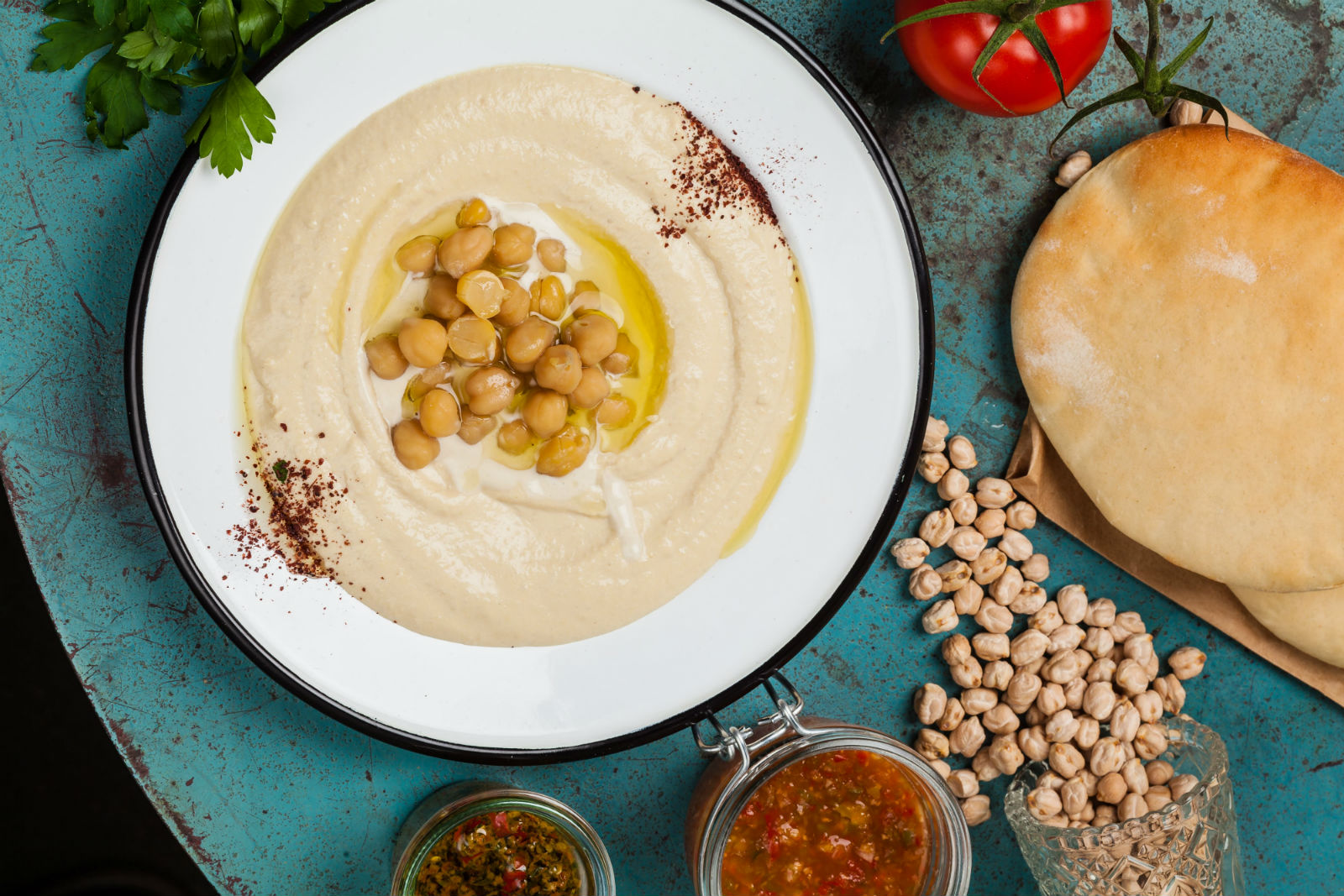
Berlin has become a destination for Israeli food thanks to the influx of Israelis. Yafo, opened in 2016, is a great place for adventurous groups who want to taste it all, from the hummus and labneh to the chraime (North African fish in tomato sauce). Be sure to order shots of arak — an anise liquor popular in Israel and Turkey — and see what happens next. Gordon is a restaurant and bar that doubles as a record store and home to the first Israeli-German record label. Self-taught chef Nir Izveniki dreams up new takes on his Moroccan grandmother’s recipes. Kanaan, opened three years ago by an Israeli and Palestinian, fuses Arab and Israeli traditions with Moroccan and Romanian influences. Located in East Berlin, it will soon open a new outpost in the food court of KaDeWe, the world-famous mall in the heart of West Berlin. Zula, opened in 2010, was a trendsetter in Berlin’s nascent Israeli hummus scene. Eivgi’s, in West Berlin, near Rathaus Schöneberg (where JFK held his famous “Ich bin ein Berliner” speech), serves traditional homemade Moroccan-Israeli food and is one of the only kosher hummus places in the city. Galilee, also in West Berlin, serves Arab-Israeli food from the North and is very popular among Israeli Berliners who long for the flavors of home. Last but not least in the emerging scene is Bobbe Speisesalon, a kosher restaurant and bar located in West Berlin. The restaurant serves Israeli Mediterranean food with a bit of German and other European influences in a stunning space that dates back to 1903.
![]() Yafo
Yafo
Gormannstr. 17b
10119 Berlin, Germany
Neighborhood: Prenzlauer Berg
![]() Gordon
Gordon
Allerstr. 11
12049 Berlin, Germany
Neighborhood: Neukölln
![]() Kanaan
Kanaan
Kopenhagener Str. 17
10437 Berlin, Germany
Neighborhood: Prenzlauer Berg
![]() Zula
Zula
Husemannstr. 10
10435 BERLIN
Neighborhood: Prenzlauer Berg
![]() Eivgi’s
Eivgi’s
Belziger Straße 75
10827 Berlin
Neighborhood: Schöneberg
*This restaurant is kosher.
![]() Galilee
Galilee
Uhlandstraße 142
10719 Berlin
Neighborhood: Schöneberg
![]() Bobbe Speisesalon
Bobbe Speisesalon
Motzstraße 91
10779 Berlin
Neighborhood: Schöneberg
*This restaurant is kosher.

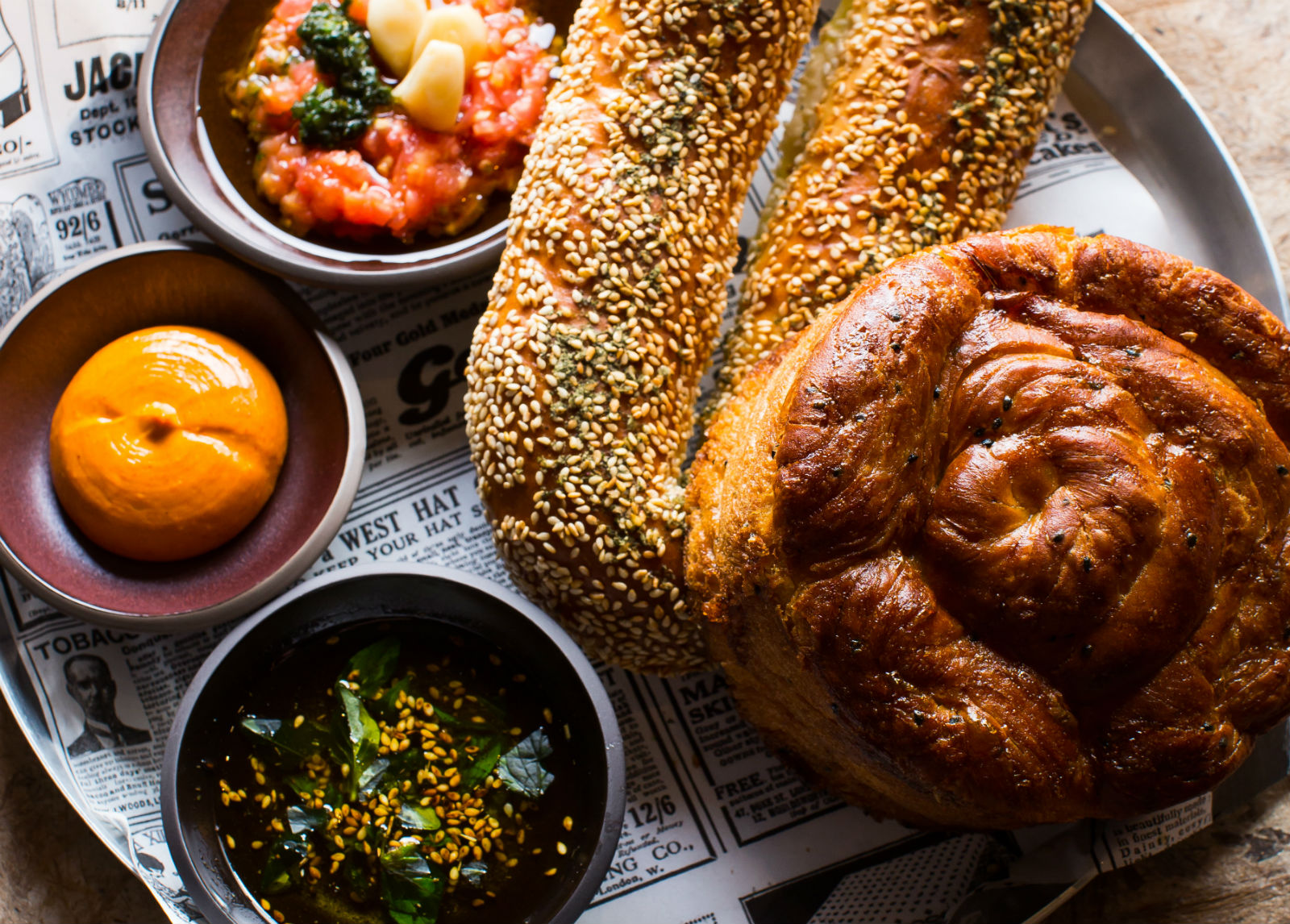
As Berlin’s Israeli community matures, a new breed of upscale restaurants are joining in on the fun. Layla, a high-end concept from celebrity Israeli chef Meir Adoni, features eggplant carpaccio and his version of Arayes, a Nazareth classic dish that consists of grilled pita filled with beef. Prism, from chef Gal Ben Moshe, is the newest addition to the upscale Israeli space. It defines its food not as Israeli but as a contemporary interpretation of Levantine (Syrian, Lebanese, and North Israeli) cuisine, with a touch of Ashkenazi in their inventive “chopped liver” dipped in liquid nitrogen. MontRaw, in Prenzlauer Berg, was founded by two young Israelis. Chef Ben Berrebi developed a sophisticated menu that explores the flavors of his Yemenite heritage. The seafood-oriented menu is largely seasoned with Middle Eastern spices. Benedict, a chain in Israel that serves all-day gourmet breakfast, opened its first European outpost in Berlin. Famous for its fluffy pancakes, as well as its robust Israeli breakfasts, the place is crowded on both weekday and weekend mornings. They also offer sufganiyot and latkes for Hanukkah.
![]() Layla
Layla
Hallesche Str. 10, 10963 Berlin, Germany
Neighborhood: Kreuzberg
![]() Prism
Prism
Fritschestraße 48
10627 Berlin
Neighborhood: Charlottenburg.
![]() MontRaw
MontRaw
Straßburger Straße 33
10405 Berlin, Germany
Neighborhood: Prenzlauer Berg
![]() Benedict
Benedict
Uhlandstraße 49
10719 Berln
Neighborhood: Schöneberg

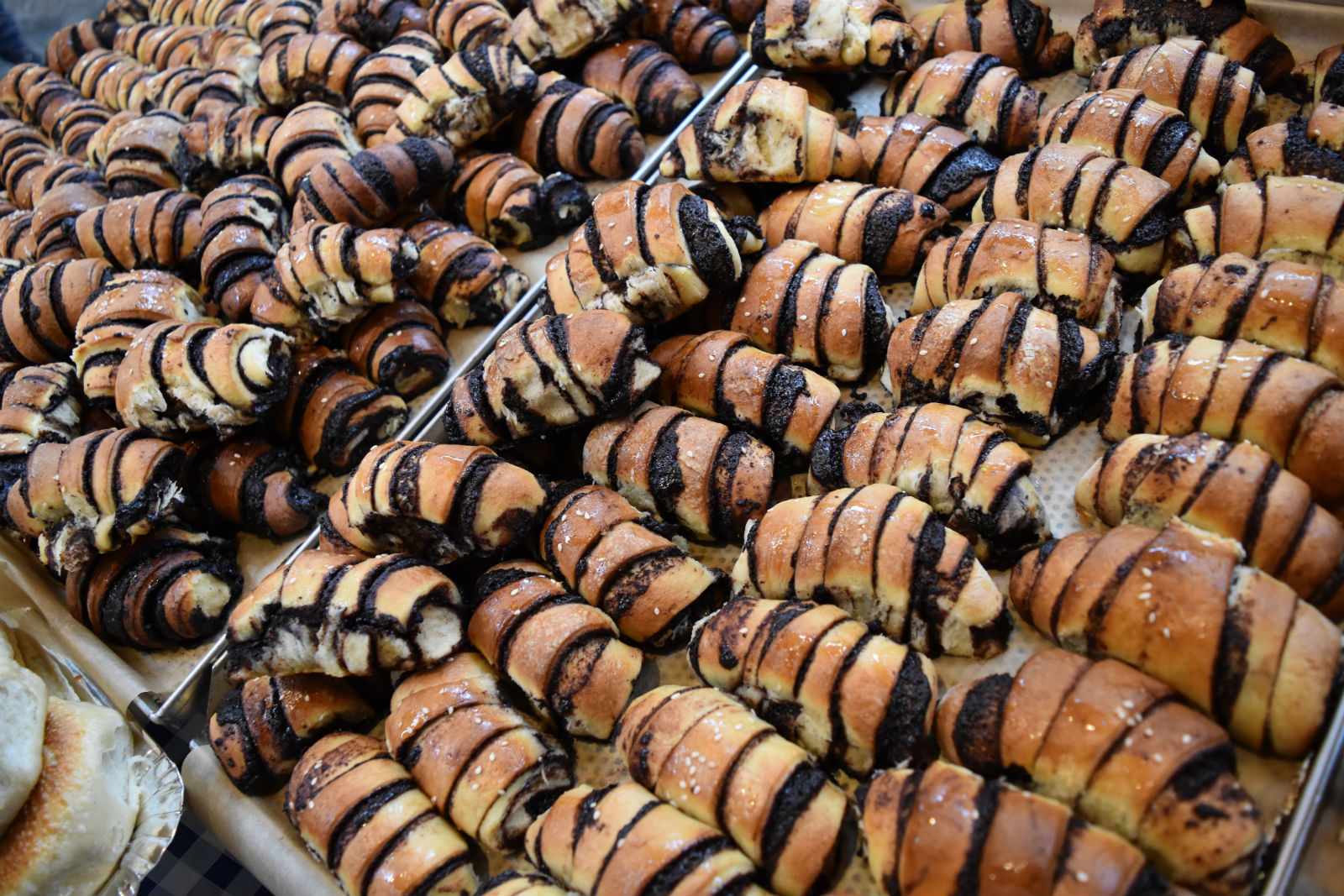
Berlin’s annual Jewish food festival, Nosh Berlin, launched in 2017. Organized by Laurel Kratochvila of Fine Bagels and writer Liv Fleischhacker, the annual event includes pop-up Shabbat dinners, workshops, demos, lectures, movie screenings, klezmer parties, and more. The first two festivals took place in the early spring, though occasional events take place year-round. Goldhahn and Sampson is a bookshop, cooking school, and grocer that offers all manner of classes, including regular Jerusalem cooking classes with cookbook author Ofir Graizer and an occasional Jewish deli class featuring blintzes, bagels, and brisket. Elements of Food is a Berlin-based culinary brand owned by Itay Novik (co-writer of this guide) which produces pop-ups and dinners, including a falafel pop-up event and a few Ashkenazi dinners that explore the boundaries of what defines Jewish food. Ich bin eine Sufganiya by Yuval Belans makes high-end sufganiyot for Hanukkah, though please note you will need to preorder and pick up from Prenzlauer Berg.
![]() Nosh Berlin
Nosh Berlin
For details about this one-of-a-kind Jewish food festival and its upcoming events, see their website.
![]() Goldhahn & Sampson
Goldhahn & Sampson
Dunckerstraße 9
10437 Berlin
Neighborhood: Prenzlauer Berg
![]() Elements of Food
Elements of Food
Full details about upcoming events can be found on the website.
![]() Ich bin eine Sufganiya
Ich bin eine Sufganiya
If you’re in Berlin in December, book your Sufganiyot in advance.

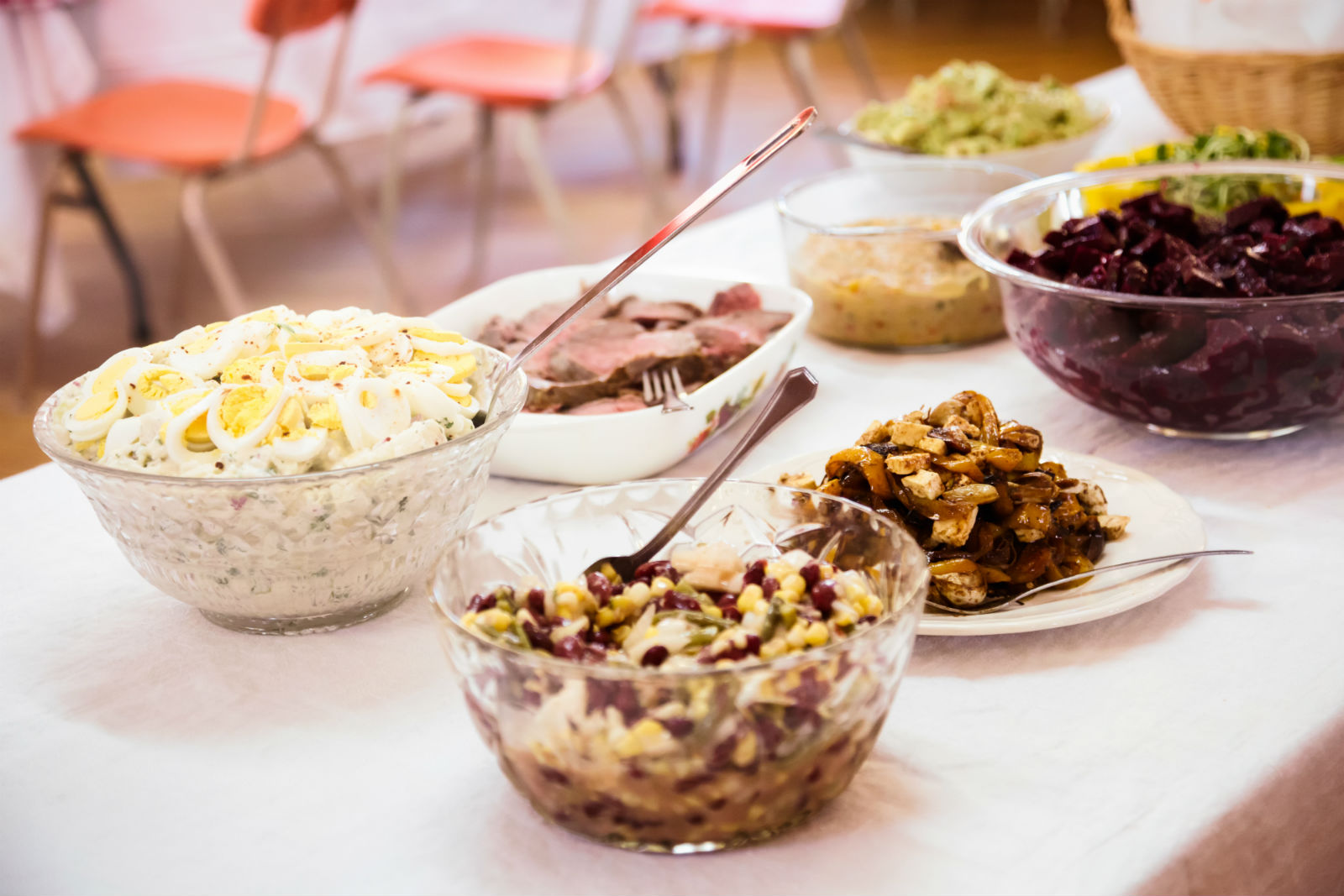
The neoclassical Fraenkelufer Synagogue, built in 1916, was partly destroyed in World War II, but one of its buildings was rebuilt by Holocaust survivors just afterward. Recently, millennials Nina Peretz and her husband Dekel revitalized the Fraenkelufer Synagogue along with Friends of Fraenkelufer, and today the synagogue serves Berlin’s growing community and hosts weekly Shabbat services followed by regular communal holiday and Shabbat dinners for the community. Visitors can be in touch with the organizers to see about joining for meals. Through Base Berlin Tisch, a program also supported by the Friends of Fraenkelufer, anyone willing to host a Shabbat or holiday meal can receive 100 euros to do so. This has built a network of community dinners around Neukoelln and Kreuzberg and has greatly contributed to the nascent Jewish community’s identity and its embrace of Jewish food. Visit Base Berlin Tisch to find out more or find a seat at someone’s table.
![]() Fraenkelufer Synagogue
Fraenkelufer Synagogue
Fraenkelufer 10
10999 Berlin, Germany
Neighborhood: Kreuzberg
With special thanks to local experts: Liv Fleischhacker (food and drinks writer); Atina Grossmann (scholar of European Jewish history); Laurel Kratochvila (owner at Fine Bagels, co-founder of Nosh Berlin); and Isabel Mueller (program coordinator at Germany Close-Up).

